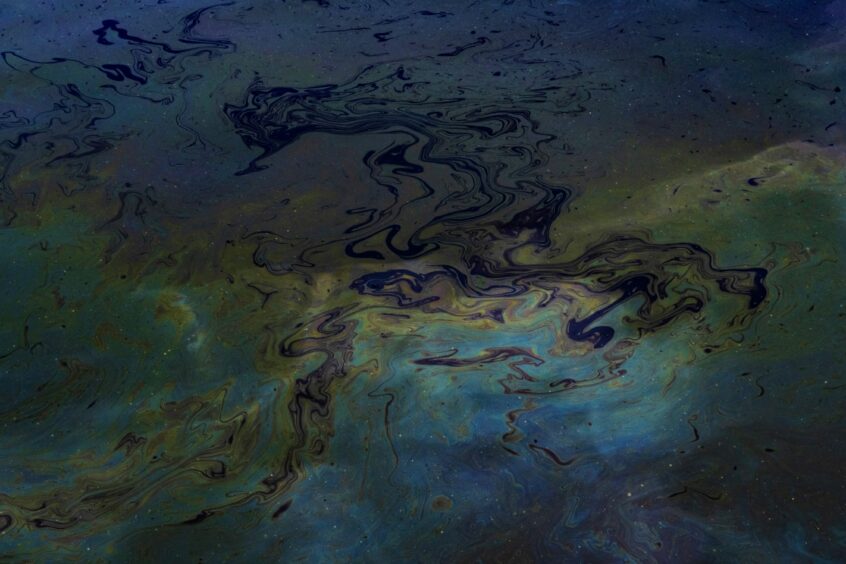
North Sea oil pollution has been “grossly underestimated” due to an opaque and misleading reporting system and ineffective regulations, a report has found.
Environmental campaign group Oceana UK said its findings show the extent of frequent, small-scale “chronic oiling” is up to 43% higher than previously reported.
The group raised concerns about the impact to marine life and marine protected areas (MPAs), as well as possible effects on human health through the food chain.
Oceana criticised “inadequate” enforcement from the offshore environmental regulator OPRED, with just 15% of offshore oil and gas infrastructure inspected in 2023.
As a result, Oceana said the North Sea industry is “not being held to account”.
The report listed firms including Repsol Resources UK, TotalEnergies, Shell, BP and CNR International as among those responsible for the highest volume of oil and chemical spills, alongside former operators Teekay Group and Talisman.
In response to the report, trade body Offshore Energies UK said the latest OPRED data showed oil mass in produced water has decreased by 30% since 2019.
Oil and chemical spills
Oceana said UK law requires North Sea firms to report both accidental oil spills and intentional discharges of so-called ‘produced water‘.
Produced water is a byproduct containing oil and other chemicals which can be released in certain circumstances under permit.
However, Oceana said breaches of these permits are typically “excluded from external analysis and scrutiny” and recorded separately to accidental spills.
According to the report, when permit breaches are added to accidental spills the total volume of oil spilt in UK waters since 2014 increases by 43%.
Additionally, Oceana said around a third of reports of permit breaches failed to include the volume of oil discharged. The average concentration of oil in produced water released into UK waters also increased by 36% between 2016 and 2020.
This means it is likely that even the updated estimates in its report “substantially underestimate” the volume of oil released during permit breaches, Oceana said.
Overall, the report found at least 1,901 tonnes of oil were spilled into UK waters from oil and gas operations between January 2011 and May 2024, equivalent to around 44,000 average car fuel tanks.
Meanwhile, there were around 5,757 tonnes of chemicals spilled over the same period.
Oceana said there 248 spills recorded in MPAs, including a six-tonne spill from the Repsol Auk A platform in 2022.
Around 49% of these instances failed to record the volume of oil discharged, Oceana said, raising concerns the impact to MPAs could be higher than reported.
‘Barely any oversight’ on North Sea firms
Oceana UK executive director Hugo Tagholm called on the UK government to “chart a new course, holding the industry accountable”.
“Our investigation reveals a shambles of opaque and incomplete reporting that is concealing the true scale of the toxic oil pollution causing devastation for UK seas and marine wildlife,” Tagholm said.
“I can’t know how a dolphin feels trying to hunt underwater with lung lesions, or a seabird that is drowning because its oiled feathers mean it cannot fly.
“But I do know it isn’t good enough. The oil industry has so far been allowed to mark its own homework on this with barely any oversight.”
Speaking to Energy Voice, Tagholm compared the situation to pollution concerns raised against UK water companies, and said North Sea firms should be setting an example.
“A healthy ocean is our biggest and most valuable buffer against climate change,” he said.
Tagholm said the report is “another piece of evidence that shows the impacts of Big Oil on our oceans”, and that Oceana will continue its legal challenge to North Sea licences.
Impact to marine life
ZSL Institute of Zoology UK postdoctoral researcher Dr Rosie Williams raised concerns about the impacts to marine life from oil and chemical pollution.
“A growing body of research now recognises that the steady release of oil and other toxins into marine environments poses a huge threat to marine life,” Dr Williams said.
“Substances such as PAHs and heavy metals can accumulate in animals and act as carcinogens and negatively impact the immune and reproductive systems.
“This bioaccumulation of chemicals is also a major concern from a human health perspective, as they enter our own food system.”
Dr Williams said it is difficult to directly trace of the impact of pollution on “highly mobile” marine mammals directly to North Sea operators.
However, she said the link between oil and gas platforms and the impact to the surrounding seabed is more clear.
“Around platforms, pollutant levels are much higher in the seabed and can breach thresholds for toxicity in marine wildlife,” she said.
“There’s also been some studies that have shown that around these platforms, species diversity specifically these benthic [seabed] species is reduced.”
Offshore environmental regulator
The Oceana report criticised the performance of the offshore environmental regulator OPRED and called for stricter regulation and enforcement.
The group said OPRED has just 11 deployable inspectors to cover the 232 offshore assets and 54 other pieces of oil and gas infrastructure in waters.
OPRED carried out 44 inspections in 2023, down from 72 the year before.
The regulator also recorded just two convictions or fines for breaches in the last five years, including fining BP £7,000 over an incident in 2020.
Fines for oil discharges and permit breaches are capped at £50,000,
This is in stark contrast to the higher penalties available to the North Sea Transition Authority (NSTA) for emissions breaches.
Meanwhile, Oceana said OPRED investigated less than 1% of permit breaches reported between 2011 and 2014, and issued just five enforcement notices since January 2019.
According to YouGov polling commissioned by Oceana, around 71% of UK adults do not trust the regulator to ensure marine life is protected from oil and gas drilling.
The polling also revealed strong support for stricter penalties for noncompliance.
It found a vast majority of UK adults support fines (90%), withdrawal of licences (85%) and prosecuting responsible individuals in companies for oil spills (81%).
North Sea ‘worst offenders’
In its report, Oceana identified the “worst offenders” for oil and chemical spills in the North Sea between January 2011 and May 2024.
TotalEnergies was responsible for the most oil released with 422 tonnes, followed by Shell (250t), Teekay Group (238t), Talisman (81t) and BP (77t).
Meanwhile, Repsol was responsible for 973t of chemicals released, followed by TotalEnergies (806t), Shell (610t), CNR International (608t) and BP (381t).
Repsol also appeared at the top of the list for companies with the largest volumes and frequency of oil discharges in breach of permit limits between January 2021 and May 2024.
According to the report, Repsol released approximately 182t of oil across 145 occasions, including .
Other firms on the list included Petrofac, TotalEnergies, Equinor, EnQuest, TAQA Bratani, Shell and Perenco.
OPRED investigates ‘every oil spill’
In response to the Oceana report, a Department for Energy Security and Net Zero spokesperson said: “We have a comprehensive framework of environmental protection measures for offshore oil and gas activities.
“Every oil spill, and discharge non-conformance is investigated by OPRED proportionately, which can take enforcement action against operators if needed, including the use of fines or referral for criminal prosecution.
“We review and update guidance as required.”
Meanwhile, OEUK HSE and operations director Mark Wilson said the industry is “focused on driving continuous improvement” and “communicating progress transparently and openly”.
“The latest OPRED data, covering up until 2023, shows that oil mass in produced water has decreased by 30% since 2019,” Wilson said.
“Companies are permitted to release some oil in produced water – which is found within rocks alongside oil and gas – as a by-product of routine production.
“Regulations allow a maximum limit of 30 parts of oil per million parts of water meaning that it contains a maximum of 0.003% hydrocarbons.
“The UK annually produces about 40-45 million tonnes of oil and up to 40 billion cubic metres of gas.”
Wilson said the North Sea industry is “committed to the delivery of energy security in a safe and environmentally responsible manner”.
A TotalEnergies spokesperson told Energy Voice: “At TotalEnergies we are using our experience and knowledge to minimise the impact of our operations on the environment.
“We’ve taken action to reduce discharges to sea, including investing in produced water re-injection wells across our North Sea assets, whilst also continuing to reduce the overall emissions associated with our operations.”
Energy Voice also contacted Shell, BP, Equinor, Repsol and EnQuest for a response to the report. Repsol and EnQuest declined to comment, while Shell, BP and Equinor did not provide a response prior to publication.

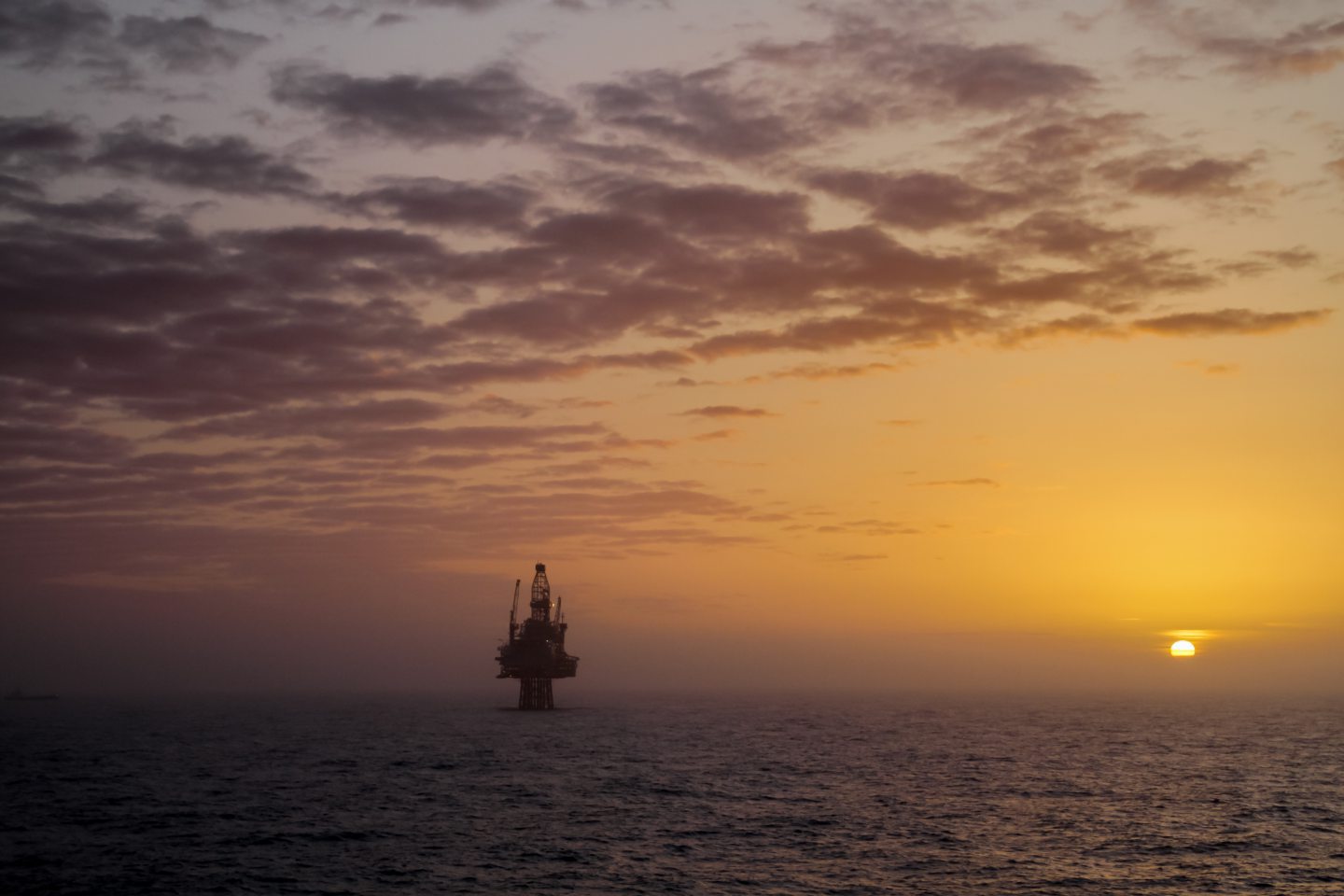 © Shutterstock
© Shutterstock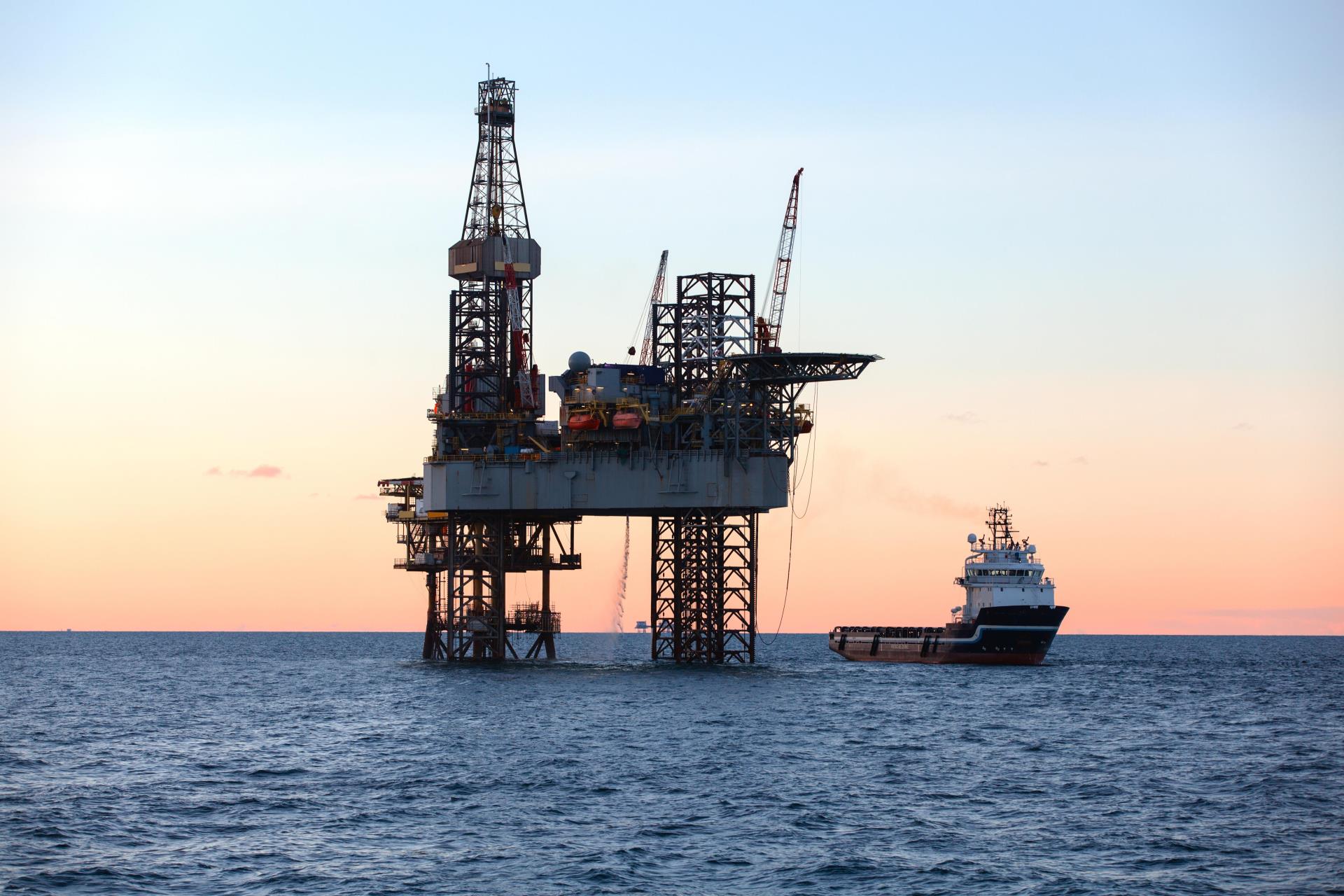 © Shutterstock / Lukasz Z
© Shutterstock / Lukasz Z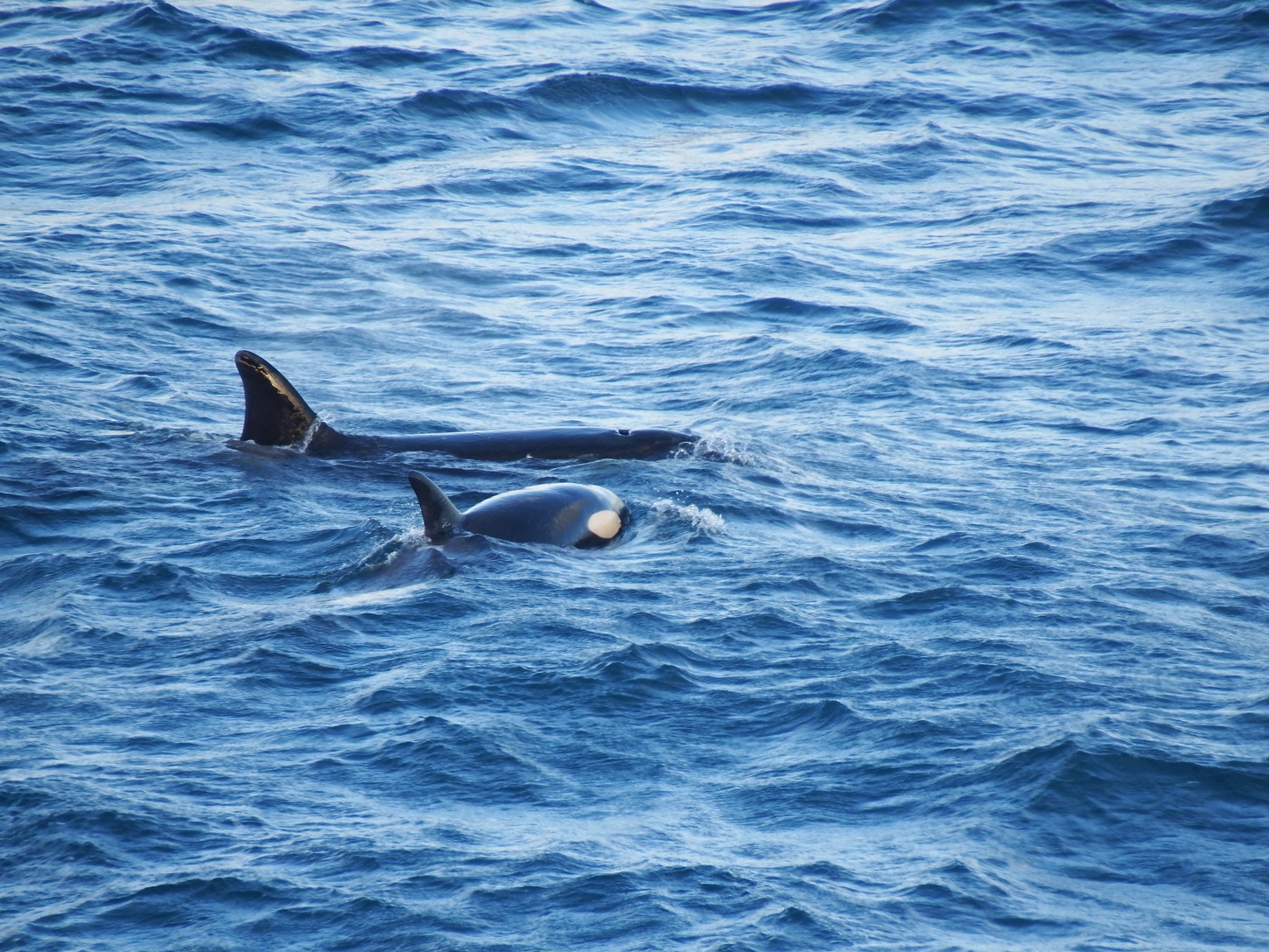
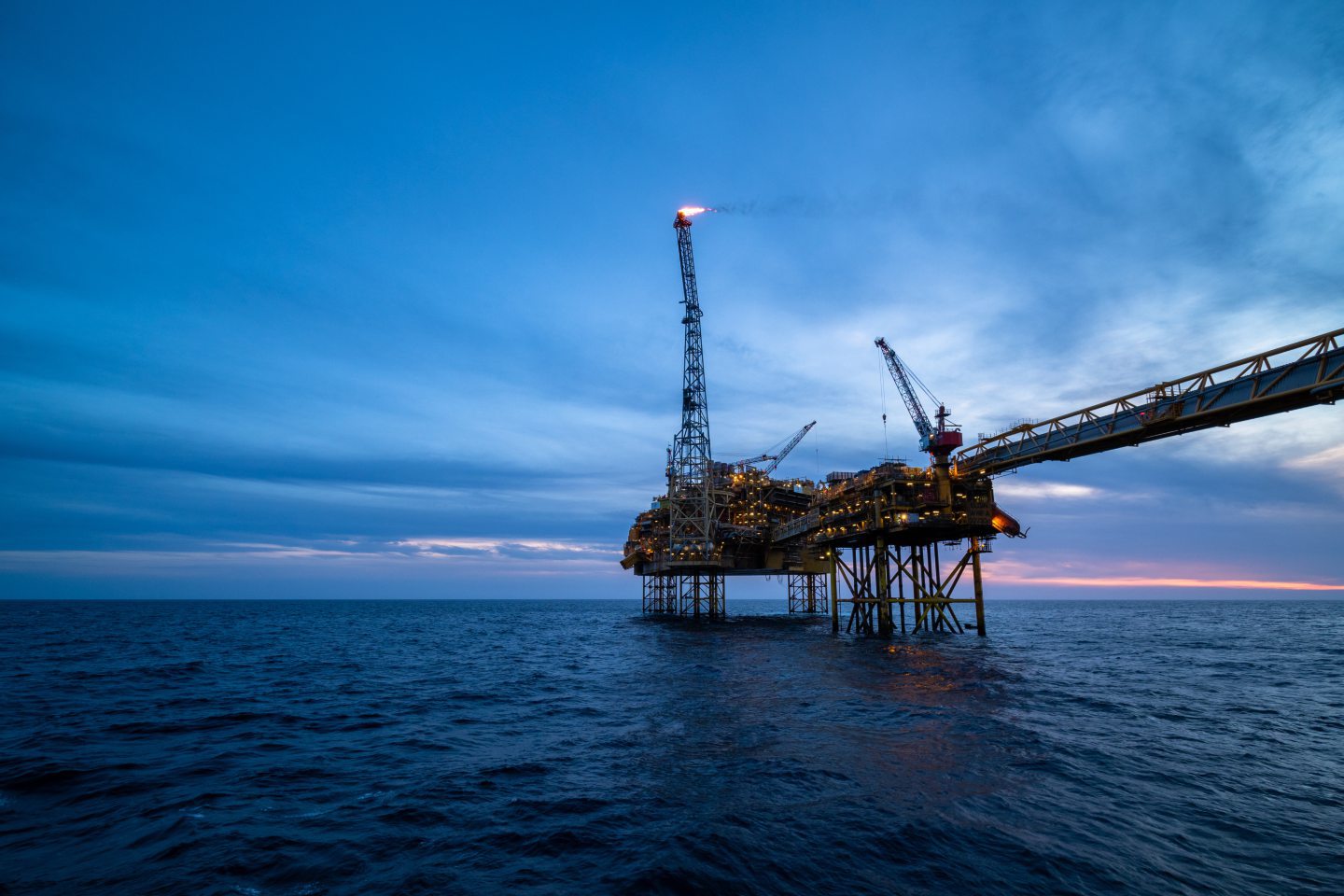 © Supplied by Shutterstock
© Supplied by Shutterstock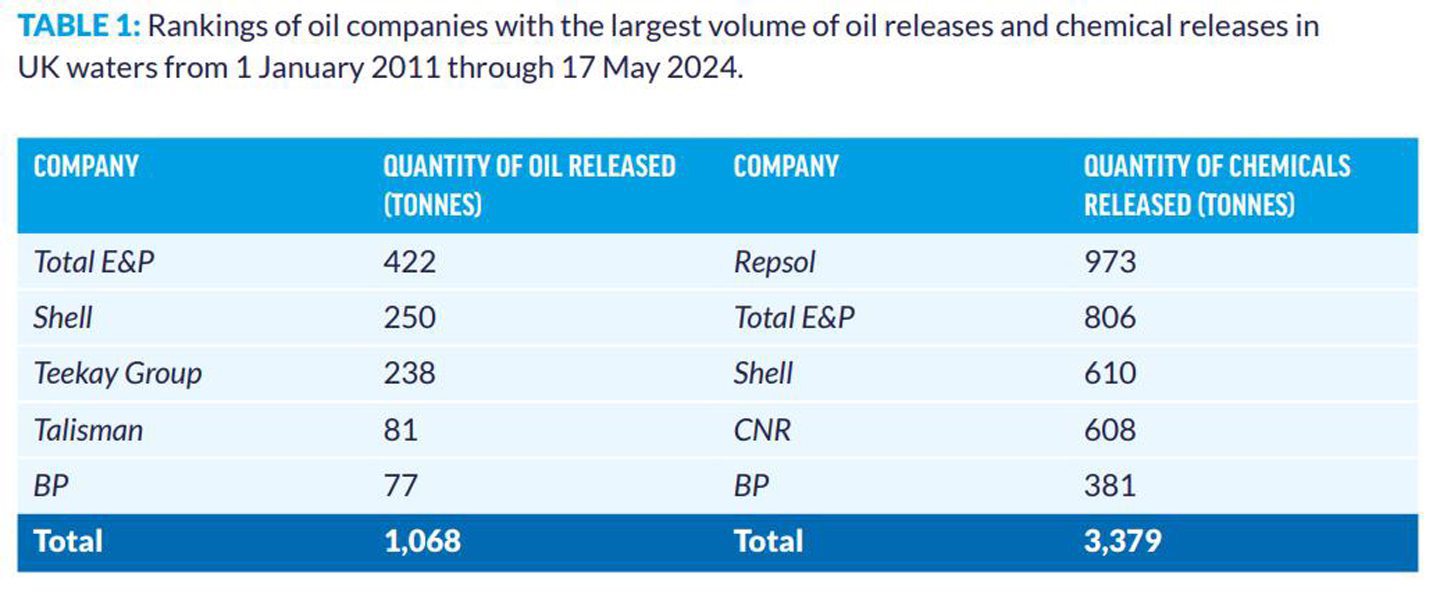 © Image: Oceana UK
© Image: Oceana UK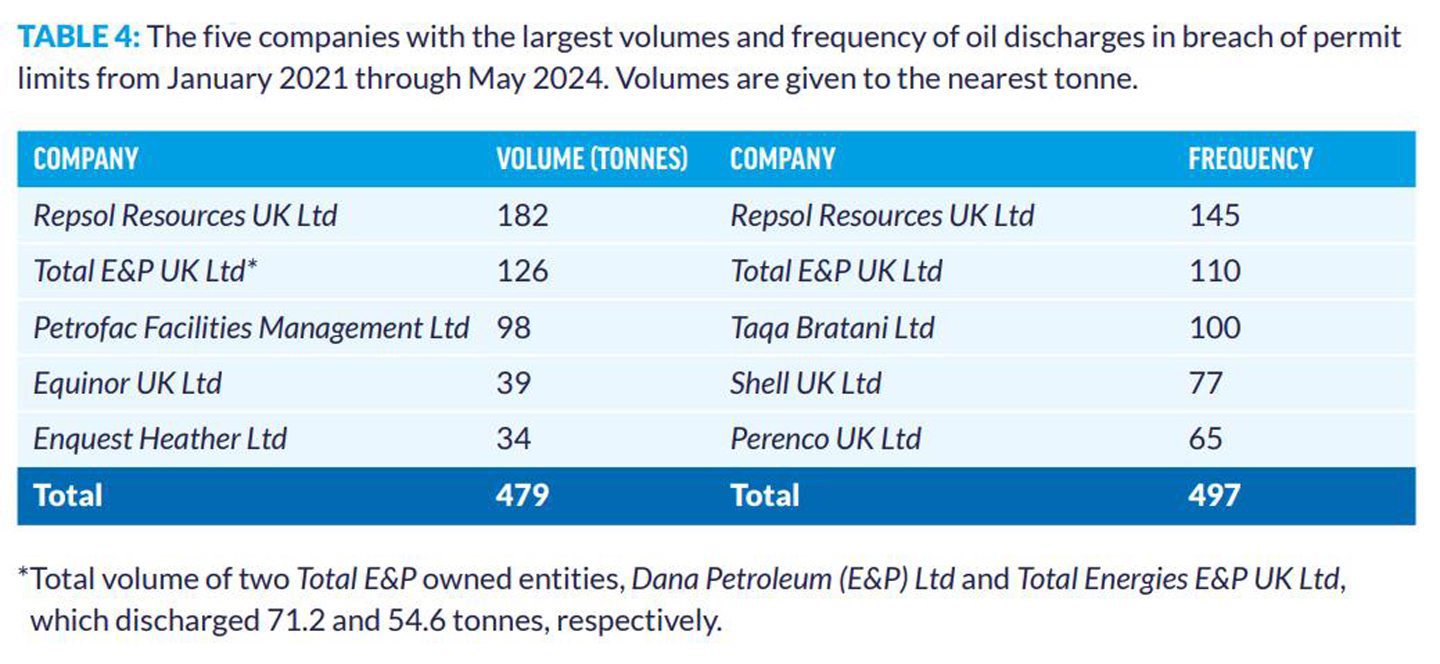 © Image: Oceana UK
© Image: Oceana UK